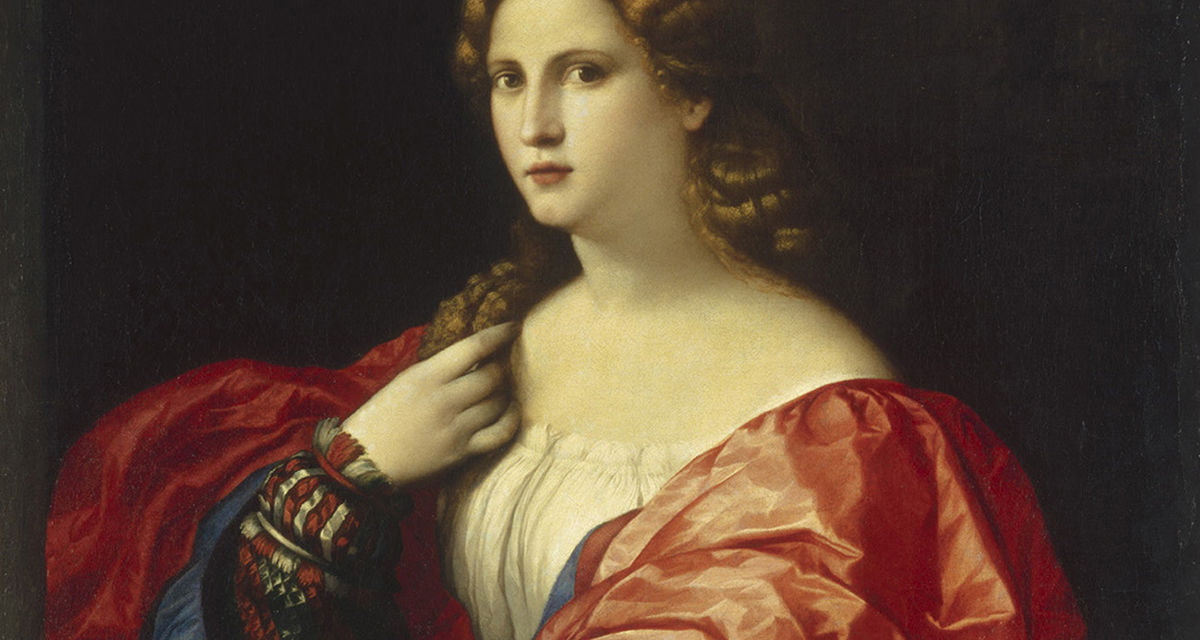Name: Francesca Caccini
Born: 18 September 1587
Died: after June 1641
Place of birth: Florence, Italy
Known for: her work La liberazione di Ruggiero dall’isola di Alcina (The Liberation of Ruggiero from the Island of Alcina, 1625) is thought to be the first surviving opera composed by a woman.
Career
In her day, Caccini was an eminent composer, poet, musician, singer and music teacher. She received her initial musical training from her father, Giulio Caccini, a well-known and prolific composer, singer, teacher and writer. He helped establish opera as an artform and was one of the most influential composers of the Baroque style.
She began performing as a singer for the Medici court at just 13 years old. In 1607, when she was 20, she gained employment at the court as a music teacher and coach, musician and composer. She was also invited to write the music for La stiava (The Slave Girl), a dance representing war battles. Italian poet and artist, Michelangelo Buonarroti the Younger, who had been hired to design and write the script for the production, was a fan of Caccini’s.
By 1614 she was the highest-paid musician of the Medici court, and in 1618 she published Il primo libro delle musiche (The First Book of Music). This comprised a collection of sacred and secular pieces, solos, and duets, as well as teaching notes and essays on music, and it was likely used by Caccini to teach her students.
In 1625, Caccini composed the work that she is known for today. La Liberazione di Ruggiero dall’Isola di Alcina is a fantastical adventure that features singing plants, monsters, sorceresses on dolphins and boats that can fly, as well as a ballet to be performed on horseback.
It was commissioned by the Archduchess Maria Maddalena for her nephew Ladislaus Sigismondo, crown prince of Poland and later Władysław IV. The prince was so pleased by the work that he had it performed in Warsaw three years later. He also commissioned two new operas from Caccini in 1626, neither of which has survived.
The opera can be seen as a proto-feminist work. The libretto is based on Ludovico Ariosto’s epic poem Orlando furioso, but the story has been reworked to centre the female characters. A celebration of feminine power, it represents the Tuscan court, with its many female roles, some of which possessed great influence.
Very few of Caccini’s works survive today, although she is known to have been a highly prolific and respected composer. She wrote some or all of the music for at least 16 staged works, all of which have been lost apart from Il primo libro, La liberazione and fragments from La tancia (1611) and Il passatempo (1614). Both were incidental music for works by other composers.
Personal life
Born in Florence on 18 September 1587, Caccini was part of a musical family. As well as her composer father, her mother Lucia Gagnolanti, younger sister Settimia, and stepmother Margherita della Scala were all talented singers.
She married – and was widowed – twice. Her first husband was Giovanni Battista Signorini, a tenor and string player. The couple married in 1607 on orders from her patron in the Medici court, the Grand Duchess Christine de Lorraine; they were both employed by the court.
They had a daughter, Margherita, in 1622. But Signorini died in 1626. Caccini remarried in 1627, this time to nobleman Tommaso Raffaelli. Their son, also Tommaso, was born in 1628. Caccini was widowed again in 1630. Margherita was also a singer.
Caccini retired from the Medici court in May 1641, after which she disappeared from the public record. Even the date of her death is unknown, although February 1645 may be likely as at this time her son Tommaso became a ward of his uncle, Girolamo Raffaelli.
Did you know?
Caccini was an excellent singer, with her vocal talent earning her the nickname La Cecchina (The Songbird).
Best-known works
Almost all of Caccini’s works have been lost to time; this may be a result of sexism. The position of women was a hotly debated topic during her time and the following centuries have done little to redress this inequality. However, her sole existing opera shows her to have been a master of harmony. La liberazione di Ruggiero dall’isola di Alcina is a remarkable work which is still performed today.
Image
La bella (1518-20) by Palma Vecchio is thought to be a representation of ground-breaking female composer Francesca Caccini (public domain, via Wikimedia Commons).

